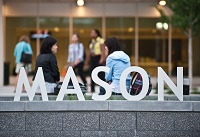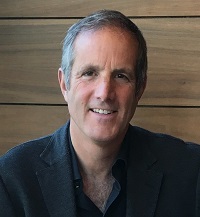Greetings from CPIP Executive Director Sean O’Connor
With the end of the crazy year of 2020 coming into view, we here at CPIP are striving for a strong finish and already looking forward to meeting 2021 as prepared as anyone can be. Our thoughts are with all of CPIP’s friends, and I’m glad to pass along yet another Roundup full of positive news.
CPIP’s Eighth Annual Fall Conference, 5G at the Nexus of IP, Antitrust, and Technology Leadership, took place via Zoom on October 7-8. Thanks to everyone who made the event such a huge success! If you weren’t able to join us, you can find videos of the sessions here on CPIP’s website, and you can read our blog posts here and here.
In other event-related news, we have posts covering our recent conference, The Evolving Music Ecosystem, now available on both CPIP’s blog and IP Osgoode’s blog, hosted by our friends at York University’s Osgoode Hall Law School in Toronto. Bradfield Biggers, recent Boston College Law School graduate and music fintech entrepreneur at Timshel, and Meghan Carlin, Osgoode Hall law student and Co-President of the Osgoode Entertainment & Sports Law Association. You can check out the CPIP posts, here, here, here, and here, and the IP Osgoode posts here, here, here, and here.
CPIP would like to congratulate Thomas Edison Innovation Fellow Christa Laser on her professorship at Cleveland-Marshall College of Law! We’re excited about this opportunity for Christa to move into the world of academia, and we eagerly look forward to seeing all she has to offer in this space.
Congratulations also to Terrica Carrington of the Copyright Alliance for testifying at the “Copyright and the Internet in 2020” hearing before the House Judiciary Committee on September 30! You can find the written testimony, as well as a video of the hearing, on the Committee’s website. Terrica blogged about the oral argument in Google v. Oracle as well, and she joined the Committee for Justice on October 9 for a virtual panel discussion about the oral argument.
In other notable new from CPIP affiliates, CPIP Senior Scholar Mark Schultz and other experts have participated in a video for the Geneva Network on how IP helps in the battle against COVID-19. CPIP Affiliate Scholar Hina Mehta is speaking on October 30 at a session titled “Intellectual Property and its Commercialization” during Industry Day, an event hosted by George Mason University’s Department of Mechanical Engineering. Also this month, I spoke at the Law & Economics Center’s virtual Symposium on the Economics and Law of Cannabis Markets on October 12, as well as on the “Machine Learning in the Lab and in the Marketplace” panel at the LES 2020 Annual Meeting on October 16.
I’m grateful to the indefatigable CPIP staff for another productive month—especially in these crazy times—and I hope the coming months will allow us to catch our collective breath to prepare for the new year. Please read on for more October news from CPIP, and I wish you an early, happy—and especially safe—Thanksgiving!
CPIP Hosts Eighth Annual Fall Conference on 5G and the Internet of Things

On October 7-8, 2020, CPIP hosted its Eighth Annual Fall Conference, 5G at the Nexus of IP, Antitrust, and Technology Leadership, online from Scalia Law in Arlington, Virginia. The conference featured a keynote address by the Honorable Andrei Iancu, Under Secretary of Commerce for Intellectual Property and Director of the USPTO, and it was co-hosted by Scalia Law’s National Security Institute (NSI).
This conference addressed fast-emerging intellectual property (IP), antitrust, and technology leadership issues in the 5G and “Internet of Things” innovation ecosystem. Coverage included standard-essential patents (SEPs) along with established and emerging markets on a regional and global basis. Speakers were drawn from the academic, industry, and policymaking communities, with an emphasis on using objective fact-based analysis to explore points of convergence among legal, economic, and geopolitical perspectives on the IP and regulatory infrastructures that underlie these critical industries.
Our blog posts summarizing the conference are available here and here, and you can watch the conference videos here.
CPIP Welcomes Ken Randall as Next Dean of Scalia Law School
 George Mason University has announced that Ken Randall will be the next Dean of Antonin Scalia Law School, beginning on December 1, 2020.
George Mason University has announced that Ken Randall will be the next Dean of Antonin Scalia Law School, beginning on December 1, 2020.
CPIP Executive Director Sean O’Connor welcomed the news: “We couldn’t be happier with the selection of Ken Randall as Dean-Elect. He cares deeply about the continued success of CPIP and is no stranger to innovation and commercialization. He and I have already developed a great working relationship, and CPIP endeavors to support his Deanship in any way we can. We also thank Dean Henry Butler for his outstanding leadership and look forward to working with him as a faculty colleague and Executive Director of the Law & Economics Center.”
The Center for the Protection of Intellectual Property congratulates Dean Randall on his appointment and welcomes him to the Scalia Law family. His rigorous academic mind, strong leadership skills, and expertise in online learning bring together the ideal skill set to take our law school to new heights. We very much look forward to working with him in the near future.
To read our announcement, please click here.
Spotlight on Scholarship

Deepak Hegde, Joan Farre-Mensa, & Alexander Ljungqvist, What Is a Patent Worth? Evidence from the U.S. Patent “Lottery”, 75 J. Finance 639 (2020)
Deepak Hegde of New York University and co-authors Joan Farre-Mensa and Alexander Ljungqvist have published a new paper from our Edison Fellowship program entitled What Is a Patent Worth? Evidence from the U.S. Patent “Lottery” in the Journal of Finance. The paper provides empirical evidence that startups that obtain their first patent have, on average, 55% higher employment growth and 80% higher sales growth five years later. Utilizing a unique dataset drawn on unprecedented access to USPTO internal databases, the study also shows with causal evidence that these startups pursue more—and higher quality—follow-on innovation as the first patent boosts innovation by facilitating their access to funding.
Olena Ivus, Edwin L.-C. Lai, & Ted M. Sichelman, An Economic Model of Patent Exhaustion, 29 J. Econ. & Manag. Strategy 816 (2020)
CPIP Senior Scholar Ted Sichelman of the University of San Diego, along with Olena Ivus and Edwin Lai, have published a new paper in the Journal of Economics & Management Strategy entitled An Economic Model of Patent Exhaustion. The paper, which comes from our Edison Fellowship program, uses a sophisticated economic model to show that, contrary to the Supreme Court’s opinion in Impression Products v. Lexmark, mandatory patent exhaustion can be highly inefficient, particularly when transaction costs are low. The authors show that it is socially optimal for patent owners to be able to opt-out of exhaustion via contract when the social benefits from buyer-specific pricing outweigh the social costs from transaction cost frictions in individualized licensing.
Lauma Muizniece, University Autonomy and Commercialization of Publicly Funded Research: The Case of Latvia, ___ J. Knowl. Econ. ___ (2020)
In this paper from our Edison Fellowship program, Lauma Muizniece of the Investment and Development Agency of Latvia focuses on university autonomy as one of the key variables in commercializing publicly funded research in Latvia. The paper presents a case study using secondary data and interviews to demonstrate that, with greater funding flexibility and experimentation, universities could develop better ways to commercialize their research that are currently hindered by systemic bottlenecks. By taking a more nuanced approach at the research organization level that aligns incentives with opportunities, the paper argues that researchers and those who pursue commercialization of that research would be more successful in their endeavors.
Activities, News, & Events

CPIP Director of Copyright Research and Policy Sandra Aistars and the students in her Arts & Entertainment Advocacy Clinic joined the Washington Area Lawyers for the Arts (WALA) and the Copyright Alliance to co-host a virtual event entitled Arts and the Pandemic to discuss how local venues and artists are affected by the pandemic and to offer legal assistance to individual artists and small businesses. Prof. Aistars has written two recent articles at Law360 about the Google v. Oracle case. The first, RBG’s Legacy Can Guide High Court In Oracle Copyright Case, traverses the late Justice Ginsburg’s love of the arts and copyright legacy and runs through the various legal issues to explain why Google’s position is wrong on the merits. The second, High Court Oracle-Google Copyright War May Benefit Artists, examines how a case that is ostensibly about computer code could have a significant impact on the livelihoods of all artists and authors. Finally, Prof. Aistars spoke at the 2020 National Volunteer Lawyers for the Arts (NVLA) conference, discussing how to protect the arts and the importance of reversing anti-IP biases in academia.
CPIP Senior Fellow for Innovation Policy Jonathan Barnett published an op-ed at The Hill entitled “Unfair Use,” Democracy and the Supreme Court about the imbalance created by the expansion of copyright law’s fair use doctrine in recent years. Prof. Barnett explains how and why the Court can rein in the fair use doctrine in Google v. Oracle, noting that the current fair use “groupthink” dogmatism fails to recognize that platform aggregators improperly rely on the exception to generate billions of dollars annually despite having borne neither the costs nor risks of developing the content. Prof. Barnett also published an essay at Truth on the Market entitled Antitrustifying Contract: Thoughts on Epic Games v. Apple and Apple v. Qualcomm. The essay explains how the Epic v. Apple and Apple v. Qualcomm cases demonstrate “the unproductive rent-seeking outcomes to which antitrust law will inevitably be led if, as is being widely advocated, it is decoupled from its well-established foundation in promoting consumer welfare—and not competitor welfare.”
CPIP Senior Scholar Erika Lietzan has published a new article in the Cato Institute’s Regulation entitled The Evergreening Myth that discusses recent efforts by U.S. policymakers to reduce so-called pharmaceutical “evergreening” by changing the antitrust, intellectual property, and regulatory landscape. Prof. Lietzan explains that claims of evergreening, where drug companies supposedly block competition by improper means, are revealed to be myths upon closer inspection. Indeed, its proponents are making unstated normative claims that blind policymakers from making informed decisions based on rigorous evidence. As Prof. Lietzan concludes, the “term’s meaninglessness makes it impossible for audiences to distinguish among situations that may be different, as a legal, theoretical, or normative matter, and that may call for differing policy solutions,” and this “does a disservice to policymakers and the public.”
CPIP Senior Scholar Kristen Osenga has published a pair of op-eds on how policymakers and regulators are threatening innovation. In an op-ed entitled Price Controls Are Intellectual Property Theft by a Different Name at Townhall, Prof. Osenga discusses a recent executive order that would decrease Medicare payments for many prescription medications to match the lowest price paid in other developed countries. This policy, which she describes as “myopic at best and downright reckless at worst,” fails to consider the devastating impact it would have on medical innovation in the United States—and how it would ultimately hurt patients in the long run. At RealClearMarkets, Prof. Osenga published an op-ed entitled Today’s Federal Trade Commission Is Taking One Giant Leap Backwards that discusses the FTC’s misguided efforts to pit antitrust and patents against each other. As she explains, patent and antitrust law share the same goal of increasing innovation. Prof. Osenga concludes: “Rather than tilting at windmills already lost, it is time for the FTC to move forward and set their focus on real impediments to innovation and competition.”
